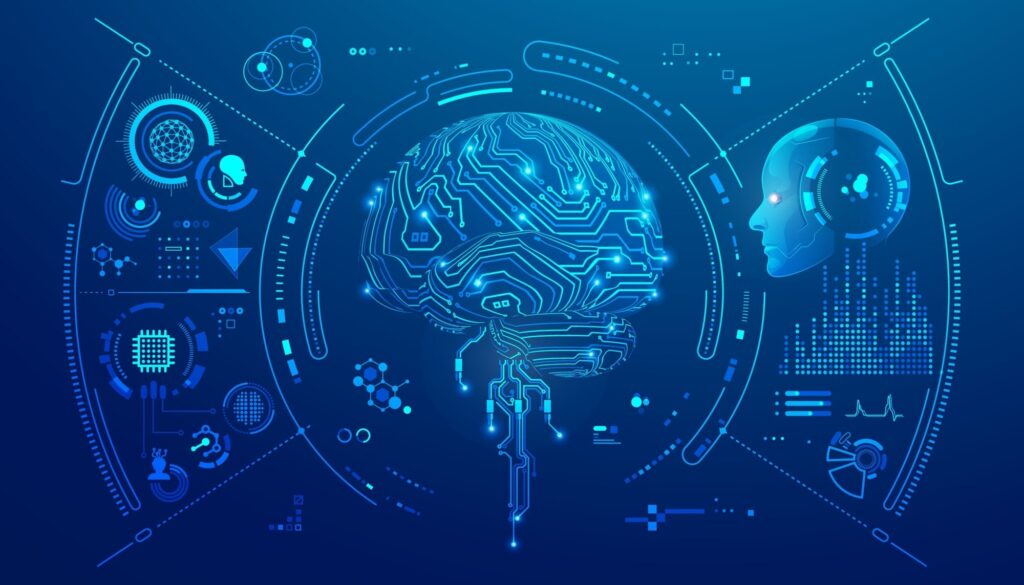Dr. Farshad Badi, Head of Computer Science and Informatics at the Berlin School of Business and Innovation, explores how AI and robotics can incorporate human-centered values to complement our experiences.
Thinking about the rapid advances in artificial intelligence (AI) and robotics makes us both excited and cautious. In my opinion, these technologies (and indeed systems) have great potential to reshape every industry and improve our daily lives. But such promises also come with challenges. How can we ensure that these systems serve us in truly meaningful ways?
How can we design robots that not only perform tasks, but also respect and reflect human (and societal) values, emotions, and diverse cultural backgrounds?
Why human-centered values are important in robotics
I believe responsible AI development in robotics is based on human-centered principles such as empathy, inclusivity, cultural awareness, and design that is purposeful and integrated at every step. In reality, it is not enough to create technically functional or efficient robots. The robots designed must be aligned with what is truly important to humans, both individually and as a society.
For example, consider healthcare robots. Their implementation is not just about automation, computation, and precision. It’s about building trust, understanding patients’ diverse needs, and supporting their emotional and human-centered well-being.
Robots that can conceptualize, understand, recognize, and respond to human emotions and needs, navigate cultural differences, and prioritize social good exemplify how technology can complement human experience.
Design robots with meaning in mind
I believe that integrating human-centered values requires a thoughtful and, of course, complex approach, one that prioritizes reflective design and active stakeholder engagement. Just as responsible education encourages learners to conceptualize and reconceptualize core fundamental concepts such as ‘analysis’, ‘reasoning’, inclusivity or ‘collaboration’, and to develop values such as ‘compassion’ and ‘equity’, so too must we encourage robotics designers and developers to reexamine their assumptions, reflect on their impact on society and incorporate ethical considerations accordingly.
Overseeing this in practice may involve interdisciplinary teams working with and collaborating with different communities to interpret and understand diverse needs, or to incorporate continuous feedback mechanisms into robotic systems to foster continuous learning and adaptation. Such efforts will help gradually build systems that are not just functional but also meaningful, systems that are in fact consistent with societal values and foster human well-being.
The role of AI and human agency
Certainly, technology can help us on this journey. For example, various AI tools can help track how concepts such as “trust” and “empathy” evolve in response to interactions with robots and changing social norms. They can highlight how our initial ideas develop through reflection and dialogue (much like pedagogical frameworks that foster meaning-making and understanding generation).
Ultimately, the onus is on us, as researchers, designers, and policy makers, to manage technology in ways that foster transparency, inclusion, and resilience. By prioritizing human agency and ethical innovation, we can design robots that are not only built to function efficiently, but also actively contribute to the fabric of society.
Transitioning to a human-centric robot ecosystem
Looking to the future, we suggest that a truly human-centered approach to robotics should foster systems that are adaptable, transparent, and capable of continuously reflecting ethics. we need to ask ourselves. “How can we ensure that these advanced systems serve diverse communities and uphold the common values of humanity?”
One way forward is to integrate participatory design practices and reflective dialogue into robotics research. Incorporating these principles will ensure that robots support human purpose, connection, and social well-being (and, indeed, values that outlive technological novelties).
Building systems that empower humans
Efforts to incorporate human-centered values into artificial intelligence and robotics are ongoing and critical.
In my opinion, the responsible development of AI in robotics requires not only technical excellence, but also a deep commitment to meaning, values, and ethics. It’s about building systems that empower people, recognize their needs, respect diversity, and help build more just and caring societies.
So I would like to leave this question. As a global community, how can we better incorporate human values into the design and deployment of tomorrow’s robotic systems?
Source link

